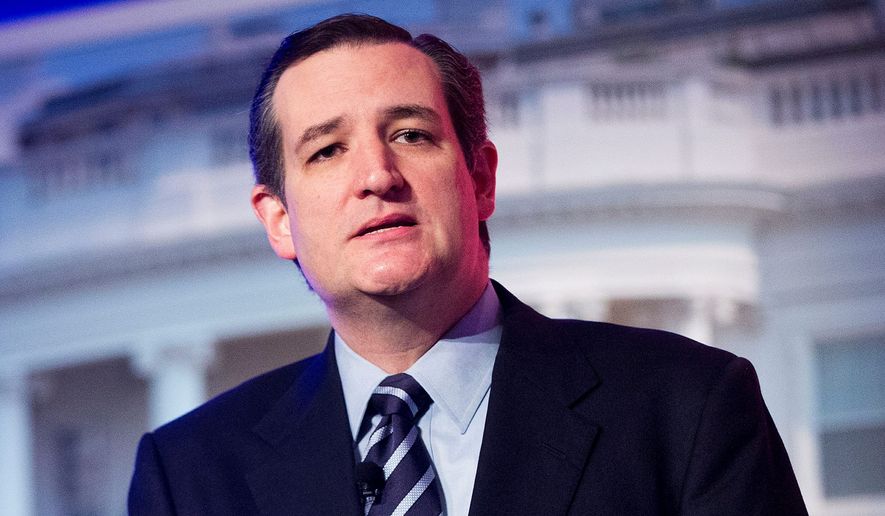Conservative columnist George Will says that Sen. Ted Cruz’s theory for running for the White House — that he can get “more votes from traditional Republican constituencies” — was “slain” by the outcome of the 1964 presidential race and simply doesn’t add up.
“The 1964 theory was that many millions of conservatives abstained from voting because the GOP did not nominate sufficiently deep-dyed conservatives,” Mr. Will wrote this week in The Washington Post. “So if in 1964 the party would choose someone like Arizona Barry Goldwater, hitherto dormant conservatives would join the electorate in numbers sufficient for victory.”
Mr. Will said the theory was “slain by a fact — actually 15,951,378 facts.”
“That was the difference between 43,129,566 votes President Lyndon Johnson received and the 27,178,188 that Goldwater got on the way to winning six states,” he said.
Mr. Cruz, Texas Republican, announced his candidacy last week at Liberty University, which bills itself as the world’s largest Christian university.
On Thursday, the Cruz camp issued a press release touting how it has raised $4 million in the eight days since the announcement.
“Often you have an establishment candidate, usually the moderate, who will be well funded,” Mr. Cruz’s spokesman Rick Tyler told The Wall Street Journal. “Here we have a candidate who is conservative and can raise money.”
Mr. Will, though, said in his column that there is no need to nominate a conservative firebrand like Mr. Cruz, given how much the party has moved to the right over the years. He warned that Republicans face an uphill battle if they cannot appeal to various swaths of the electorate, including moderates, and expand the map. He highlighted how 18 states have voted Democratic in six elections in a row, and along with the District of Columbia, that brings them to 242 electoral votes.
“Any candidacy premised on conceding those 18 states involves a risky thread-the-needle path to not much more than 270 electoral votes,” he said, alluding to the number of electorate votes needed to become president.
• Seth McLaughlin can be reached at smclaughlin@washingtontimes.com.




Please read our comment policy before commenting.